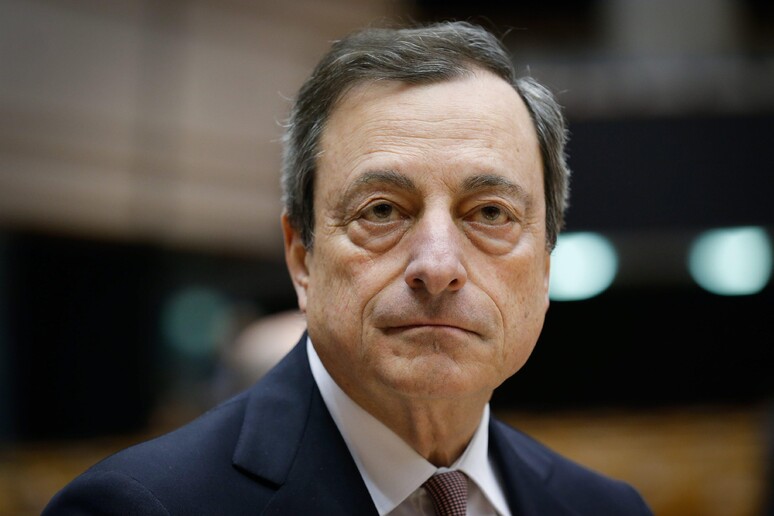The European Central Bank will begin its quantitative easing program, aimed at stimulating growth and inflation, by purchasing billions of euros in public-sector bonds starting on Monday, ECB President Mario Draghi announced Thursday.
In setting out more details of the new QE program, Draghi said the ECB will initially buy State bonds and could include even those with negative yields - but not below the ECB's deposit rate of -0.2%.
The entire program will be worth about 1.1 trillion euros over the next 18 months, with purchases scheduled to total about 60 billion euros monthly, including both public- and private-sector securities.
ECB measures to boost the economy are already producing results, as seen in "positive developments in the eurozone", Draghi added after the central bank held its regular meeting in Cyprus, away from its Frankfurt headquarters.
Draghi pointed to Eurostat's flash estimate showing real gross domestic product (GDP) in the euro area rose by 0.3%, quarter over quarter, in the final three months of 2014, "which was somewhat higher than previously expected," said Draghi. "Financial market conditions and the cost of external finance for the private economy have eased further, also following our previous monetary policy measures," added Draghi.
"In particular, borrowing conditions for firms and households have improved considerably. Moreover, money and credit dynamics have been firming".
Before launching the QE program, the central bank began other stimulus programs including purchase of asset-backed securities and covered bonds.
ECB forecasters have also increased their predictions for economic growth in the 19-State eurozone, which is now expected to average 1.5% this year, rising to 1.9% in 2016 and reaching 2.1% in 2017.
Inflation should begin to rise close to target by 2017, recovering from levels of zero this year, to 1.5% in 2016 and 1.8% in 2017. The ECB aims to hold inflation just below 2%, which is judged to reflect a stable level of economic demand and growth.
In December, the central bank trimmed its growth forecasts for the eurozone's gross domestic product, expecting it to increase by 1% this year, rising to 1.5% in 2016.
Draghi's comments came the same day Italian statistical agency Istat confirmed Italy's GDP fell by 0.4% in 2014, the third consecutive year of annual drops in the economy.
He also answered reporters' questions on the financial crisis in Greece, saying emergency liquidity to Greek banks has risen to about 68.8 billion euros.
As well, the ECB has raised its Emergency Lending Assistance (ELA) limit by 500 million euros for banks, Draghi said.
He also warned the new Greece government to guard against careless language, saying that can cause market volatility.
"If there is a communication that increases volatility, it can increase spreads and dissolve collateral," Draghi warned.
The recently elected government of Greece, especially Premier Alexis Tsipras and Finance Minister Yanis Varoufakis, have stirred controversy with their outspoken style amid recent negotiations on extending bailout conditions for the country's troubled finances.
ALL RIGHTS RESERVED © Copyright ANSA











